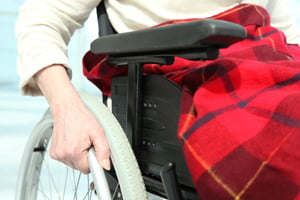Impairment is the clinical term for a loss of function due to pain or injury. Being unable to lift more than 10 lbs because of low back pain is an example of impairment. Disability is closely related to impairment, but is distinct because it involves choice. Though your impairment may not allow you to lift heavy objects you may still able to sit at a desk. You can take on a job in which lifting isn’t necessary. In this view, though you are impaired, you are not disabled for a desk job.
I once met a young woman who was employed as a secretary working the switchboard at a rehabilitation center. She was quadriplegic (paralyzed in her arms and legs), and operated the switchboard and her wheelchair by blowing through a tube. She had help in the morning getting ready to go to work and during the day for meals and personal needs. She worked 9-5, 5 days a week. Though this young woman was 100% impaired, and could have easily made the choice to be permanently and totally disabled, she chose to work. She was fortunate to be able to have a job that would accommodate her impairment. Even if that is not possible, her story highlights the fact that impairment does not have to equate to disability. Though you may be impaired, you can still participate in your life in many different capacities– whether that be through employment, engaging with loved ones, taking up a hobby, or other activities that bring fulfillment.
Filed under: pain management
Like this post? Subscribe to my RSS feed and get loads more!


